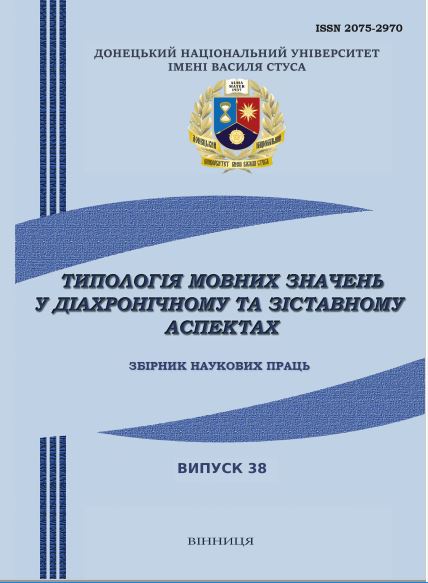Irony as a Philosophycal and Aesthetic Phenomenon Among Other Linguistic Means of Comic.
DOI:
https://doi.org/10.31558/2075-2970.2019.38.3Keywords:
irony, language means, linguistic and cultural studies, extra lingual factors, comic element, humor, satire, universal ironyAbstract
The article looks into the irony and various characteristics of irony as a philosophic and aesthetic, but at the same time linguistic category. Presently it poses high interest for a linguistic research, though linguistic and extralinguistic studies concentrating on this language means are not numerous. Thus, various aspects of evaluative language means, including those of irony as one of the means of creating comic effect, acquire special significance and appear in the focus of linguistic and cultural studies.
From ancient times, the issue of comic attracted not only different cultural figures, namely writers, artists, and painters, but also scholars – philosophers, anthropologists, psychologists, logicians, and linguists. A sense of comic is believed to be connected with a sense of pleasure which arises from an unexpected disappearance, the removal of the opposite feeling; it manifests itself in unexpected combination of incompatible notions or natural order disturbance, and this dissonance, which is initially perceived as serious and dangerous, is soon found to be completely harmless. Irony is a special means of creating comic effect which can have a variety of reciprocal reactions – from laughter to insult and indignation. The degree of expression of this reaction depends not only on the presence or absence of the listener’s sense of humor, evidently other personal traits of the listener / reader are quite important too.
So, irony is a complex and contradictory phenomenon. In the social consciousness, from the point of view of norms and rules of behavior, it still involves certain negative effect. At the same time, it is very attractive to people and brings great satisfaction to those who use it.
References
Arutiunova, N. D. (2007). Esteticheskii i antiesteticheskyi aspekty komizma. Lohycheskii analiz yazyka. Yazykovye mekhanyzmy komizma. M. : Yzdatelstvo «Indryk». 5–17.
Arutiunova, N. D. (2007). Logicheskiy analiz yazyika. Yazyikovyie mehanizmyi komizma. M. : Izdatelstvo «Indrik».
Biletska, O. O. (2016). Ironiia yak fenomen kultury. Kultura i mystetstvo u suchasnomu sviti. 17. 25–34.
Ermakova, O. P. (2007). Ironiya – lozh – shutka. Logicheskiy analiz yazyika. Yazyikovyie mehanizmyi komizma. M. : Izdatelstvo «Indrik». 219–229.
Kalyta, O. M. (2013). Zasoby ironii v malii prozi. Monohrafiia. K. : Vydavnytstvo NPU imeni M. P. Drahomanova.
Petrova, O. G. (2016). Ironiya i raznyie tipyi komicheskogo v hudozhestvennom tekste.
Shatunovskiy, I. B. (2007). Ironiya i ee vidyi. Logicheskiy analiz yazyika. Yazyikovyie mehanizmyi komizma. M. : Izdatelstvo «Indrik». 340–372.
Vorob’eva, K. A. (2007). Spetsifika ironii sredi drugih yazyikovyih sredstv komizma. Logicheskiy analiz yazyika. Yazyikovyie mehanizmyi komizma. M. : Izdatelstvo «Indrik». 201–206

